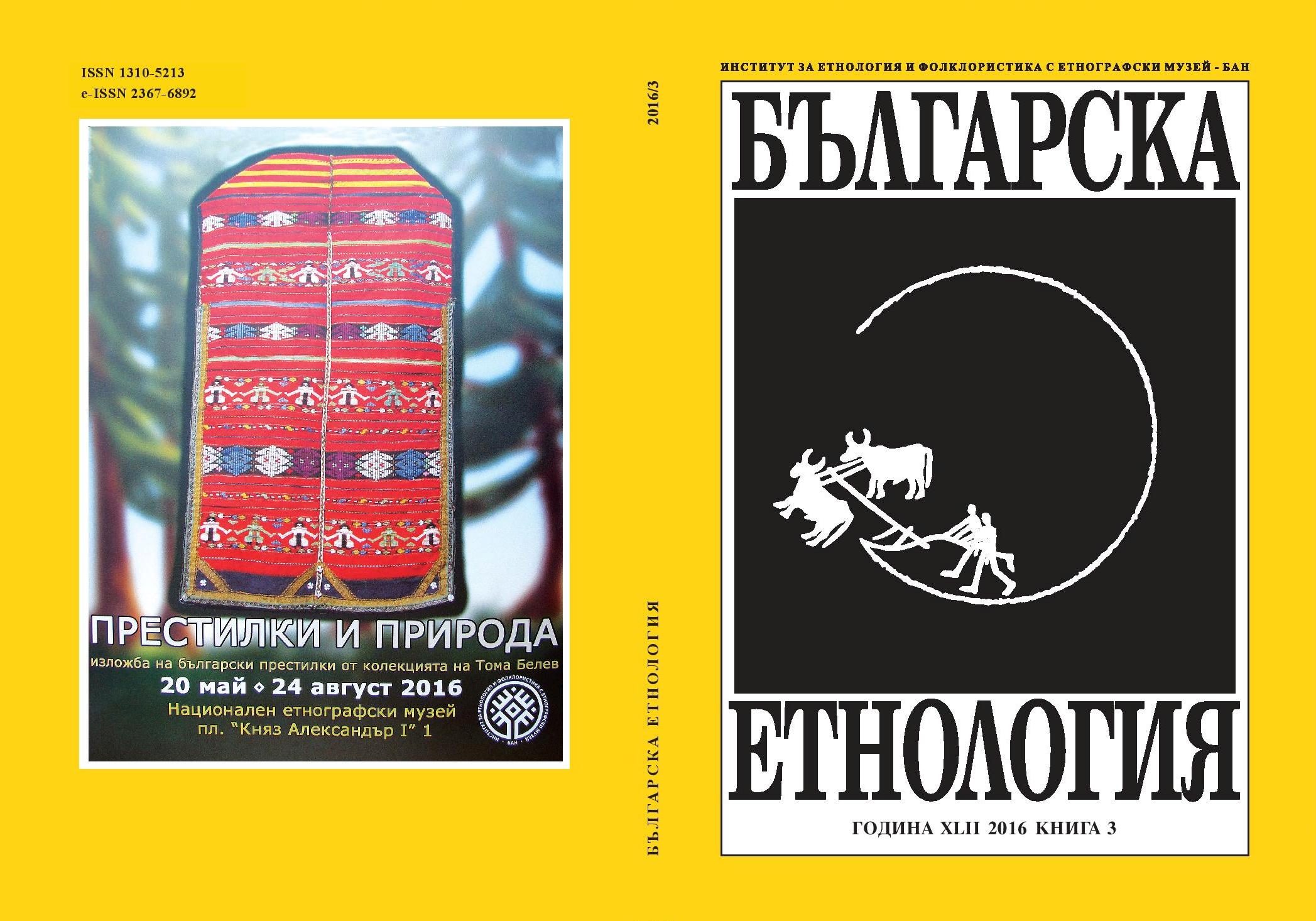
We kindly inform you that, as long as the subject affiliation of our 300.000+ articles is in progress, you might get unsufficient or no results on your third level or second level search. In this case, please broaden your search criteria.

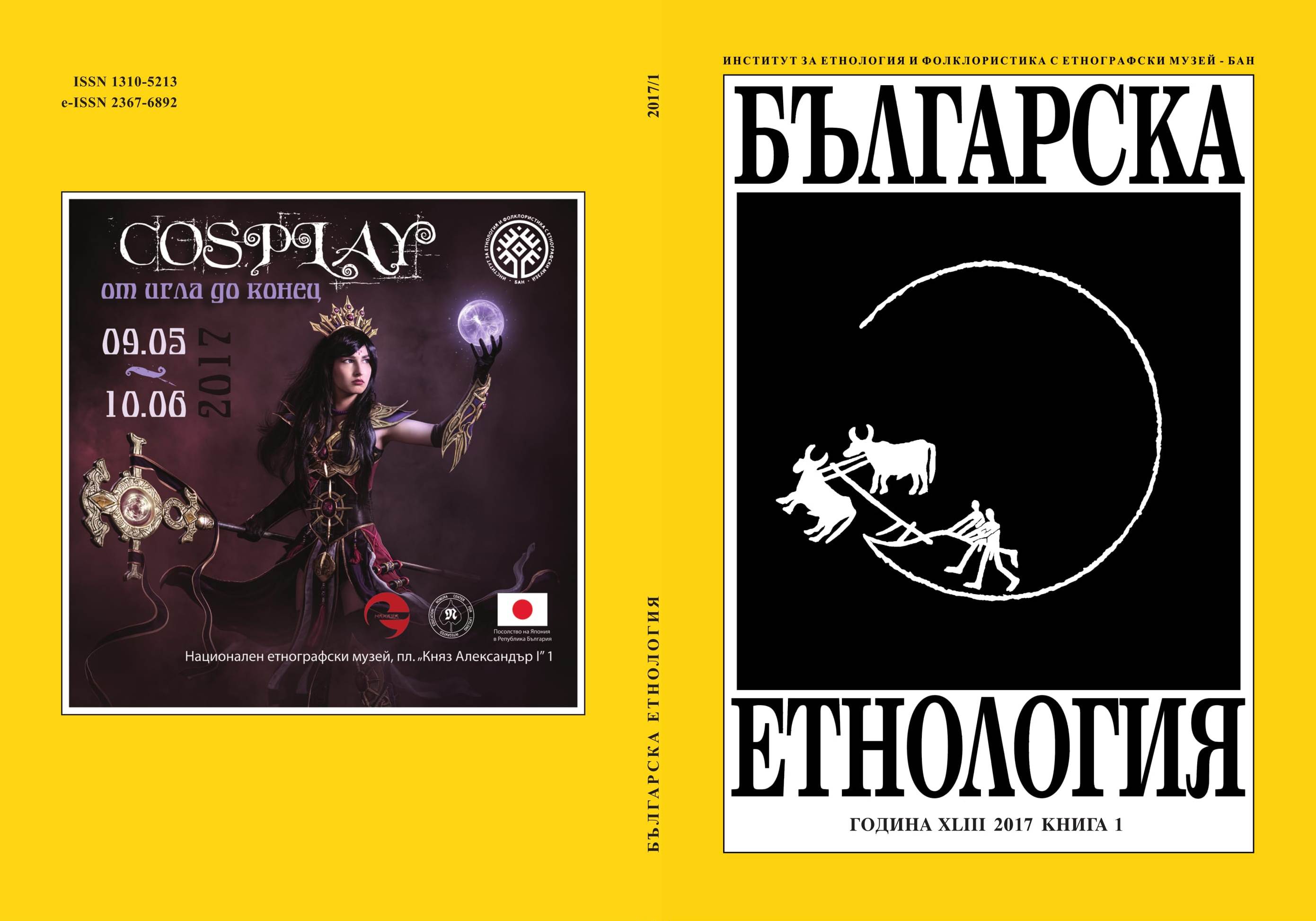
In the folklore of many peoples, the luminous bodies and phenomena are related tothe traditional concepts of the world structure. In the Bulgarian popular astronomythe Milky Way is seen as a Straw Road. The folklore texts present the “road” as both aborder and a bond between the “own” and the “alien” space, between the earthly andthe “divine” world. It is a process of movement in the mythological space but it couldalso be a place where the worlds in this space meet. Such development of the conceptof the “road” in the Bulgarian popular tradition is related to liminal rituals typical ofcalendar festivals including Christmas.
More...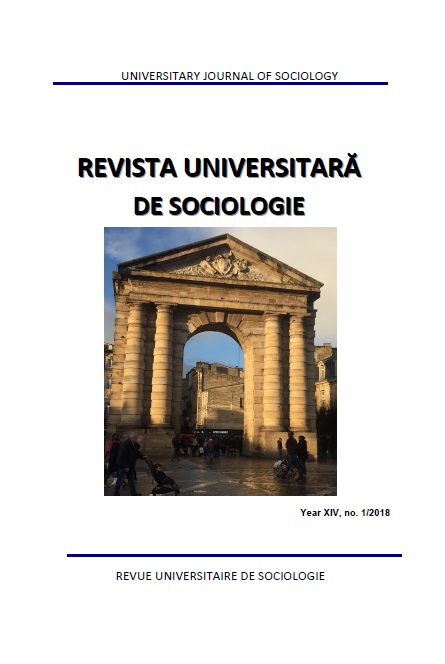
This article seeks to outline the polemics on the relationship between language and dialect and between language and social inter-action, and to present, in an analytical, synthetic and comprehensive manner, some theoretical models that provide explanatory patterns regarding the way in which language, as the basis of culture, is influencing how we relate to objective reality. First we will make a conceptual distinction on the relationship between dialect and language, we will review the philosophical premises of the issues addressed, after which the emphasis will move on the analysis of the language from four distinct paradigmatic positions: evolutionary, relativist, interactionist and constructivist.
More...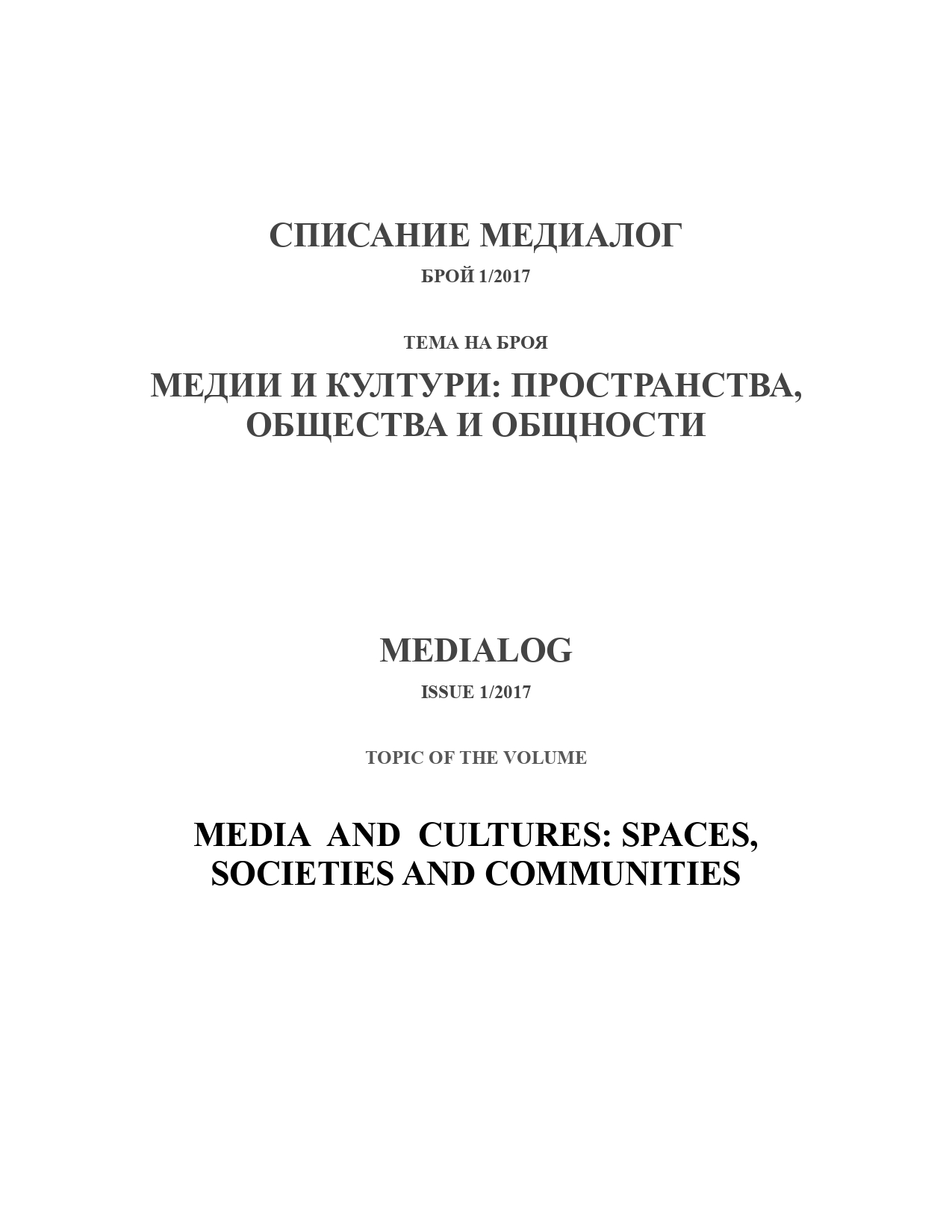
The introductory article of the first issue of 'Medialog' journal presents the new academic journal, part of a new media culture portal. 'Medialog' is a journey into the media worlds. 'Medialog' is an invitation to dialogue addressed to academic researchers and university lecturers, PhD students and students; to all who are curious to understand something more and different about media, communications and culture.
More...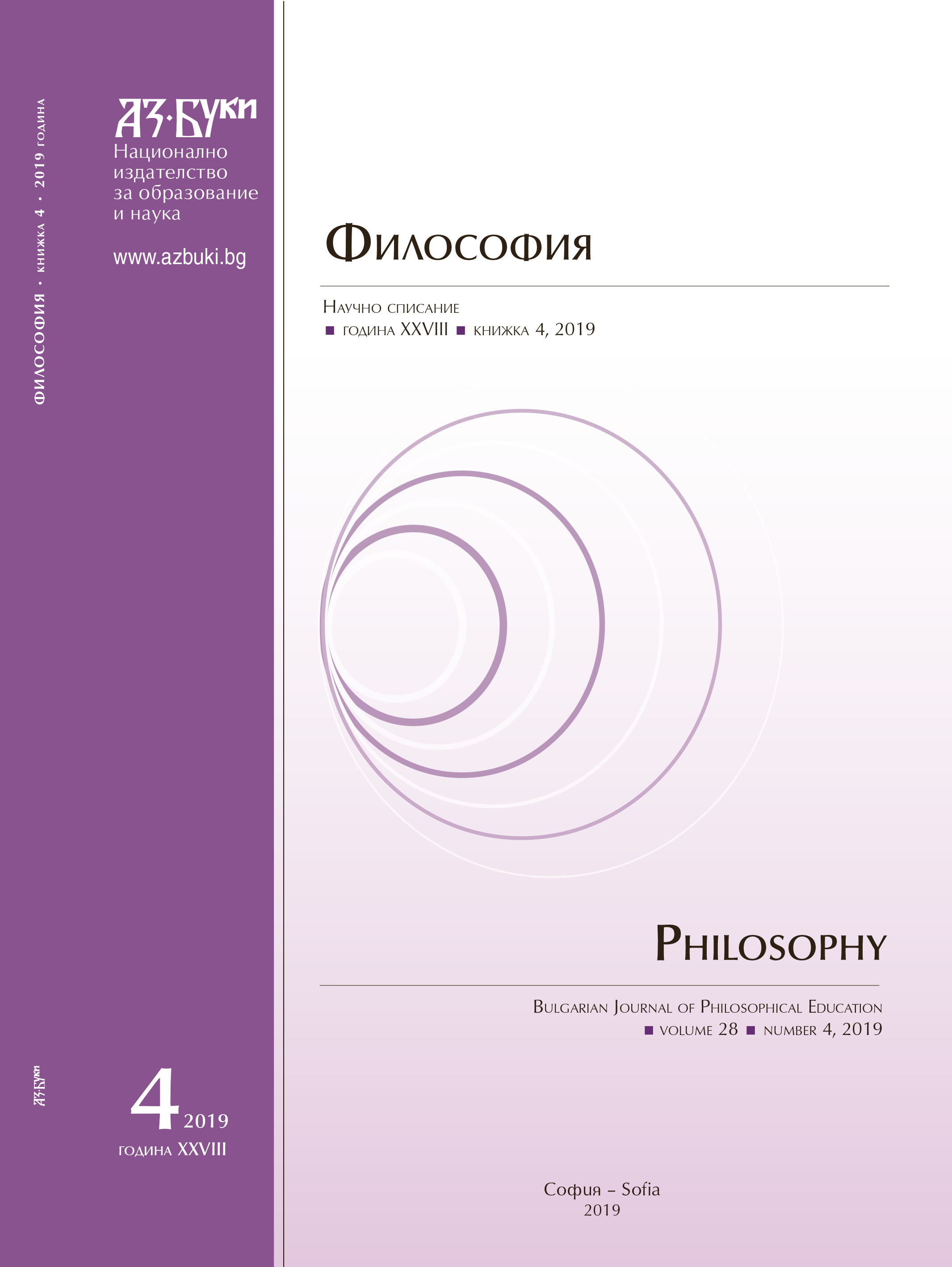
Determining the structuring models of communication in the plane of cinema art – the paradigms of communication in the field of art that mediate not only the interactions in the ‘author-film-audience’ relation but also function as implicit premises, both in the creation of a film and the establishment of its expressional, emotional and meaning consistency, and in its being perceived, experienced and understood by each separate viewer, as well as by the audience as a whole – would contribute to the restored legitimacy of cinema as an art in the current informational and cultural contexts.
More...
The paper focuses on the genre and structural features of internet memes as a means of communication online – a topic unexplored so far by Bulgarian scholars. A critical overview of the scholarly publications in English on the subject is carried out and a discourse analytic approach is employed on a number of selected internet memes from English and Bulgarian internet sites in Google and the social media. “Internet meme” is regarded as a narrower concept than the concept of “meme” as understood in memetics, the evolutionary theory of culture. The analysis covers only those internet memes in which image and text interact. Internet memes are not viewed as isolated artefacts, but as a group or system: otherwise, they are perceived as chaotic and arbitrary. Internet memes are preceded by viral artefacts – a photograph, a text, an advertisement, a song, a video, a film trailer, etc., which internet users share and disseminate without change, whereas alteration and transformation are emblematic for internet memes. Necessary parallels are drawn between humour in internet memes and humour in jokes as well as parallels between intertextuality and multimodal communication in internet memes and those in political cartoons and print advertisements.
More...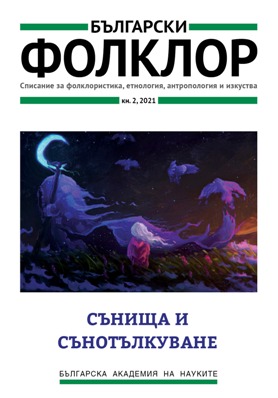
The study analyses texts that refer to dreams, excerpted from biblical, Medieval Bulgarian, literary and folklore works, and from fieldwork material collected personally by the author. The text reveals the most important features of the narrative in the dream, such as models, language formulas, and strategies for representing time. The analysis of the dream-book’s language demonstrates that today the dream-book is designed as a dictionary with its own vocabulary list and specific rules for constructing the interpretive definition, which include semantic, lexical, morphological, and syntactic laws.
More...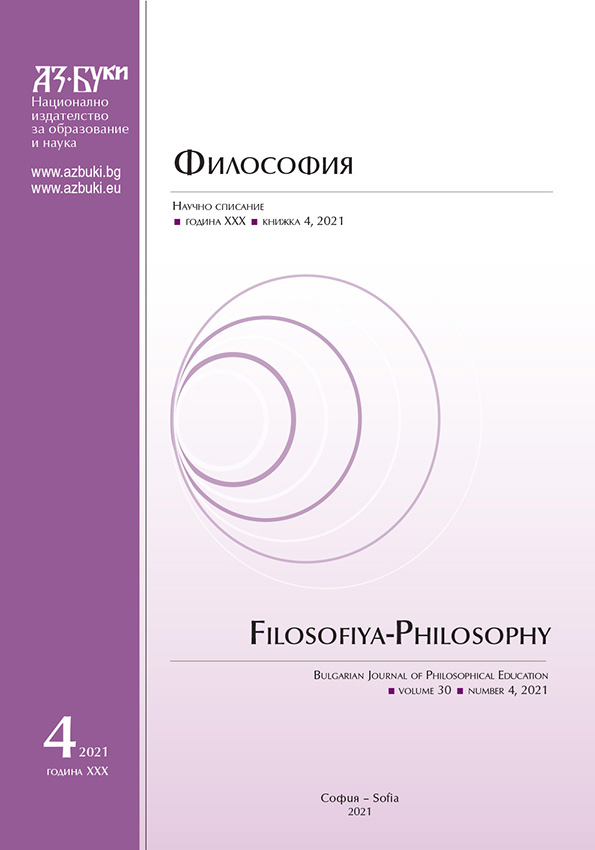
The text analyzes the possibilities to think of pure language as indicated in the harmonization of modes of intention in the translation activity. This language is, in a sense, a regulative idea and it have to be liberated in translation. It is essential to distinguish between the modes of intention and intended objects, between what is named in pure language and what is „overnamed“ in human languages. One of the theses in this text – that language in its auto-relation undergoes auto-modalization – makes the connection with Kierkegaard's understanding of the impossibility of direct communication. The indication of the untranslatable is an opportunity in the language of the translator to insert as indicated the elusive in the translation and thus to introduce the use of a broken language. Awakening of the "echo of the original" means a „thinking more“ (according to Kant) through the figure.
More...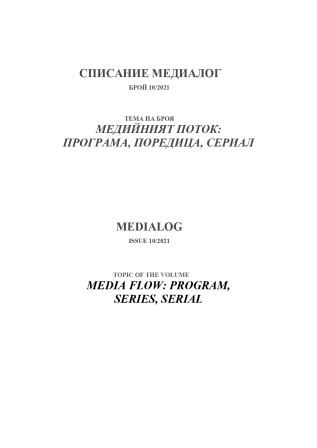
How do different arts - cinema, theater, literature, music - tell the story of the transition to democratization? This was the main topic discussed at a Round Table, held in the end of September at G8 Cinema by researchers for the project ‘The Transition after 1989 - Interpretations of Historical Change, Social Experience and Cultural Memory in Contemporary Bulgarian Literature’. The cultural heritage of Transition was at the center of discussions about the memory, the clash between the image of freedom and the market mechanisms of governing culture and art and the role of the media.
More...
The text presents the main conclusions based on the study of the political messages in the Turkish series broadcasted on Bulgarian television and on Netflix. The main political messages in the series, showed on Bulgarian television, are the responsibility for decisions, connect with the life of a woman and a child. Among the important political topics are: migration, education abroad and returning home, conflicts between rich and poor.
More...
The research focuses on commemorative practices around the figure of Mara Buneva and her memorial plaque in the center of Skopje, which can be interpreted as a Bulgarian place of memory. The study tracked only online reporting of the practices, without observing the corresponding offline events. Online versions of electronic media and agencies (TV, radio, news agency websites); online media (information websites) and social ‘we-media’ (video sharing websites, blogs, social networks, etc.) were researched. The studied materials reveal the care of some communities to establish the memorial plaque as a special Bulgarian place of memory in Northern Macedonia and the efforts of other groups seeking complete amnesia and ultimate delegitimization of the past related to Mara Buneva.
More...
Modern Mimesis: Self-Reflexivity in Literature is a passionate defence of philology that traverses the distances from Ancient Hellas to present-day Japan, from Ulysses to robots. This movement follows a logic described by the author as reconceptualization, and creates conceptual nodes configured through horizontal and vertical, temporal and spatial self-reflexive reduplications. The broad arc from the libraries of Alexandria and Pergamum to the mimetic valleys of robotics thus turns out to be underpinned by the reconceptualization of the ancient dispute between ‘analogy’ and ‘anomaly’, turning any attempt at ordering into an ‘endless series of rearrangements’.
More...
In the end of September 2021 one of the celebrations of the academic community took place – colleagues and friends congratulated prof. Lilyana Deyanova with the publishing of the anniversary anthology ‘Time and Memory’. Compilers and organizers of the academic celebration are Maya Grekova, Petya Kabakchieva, Momchil Hristov, Milena Yakimova.
More...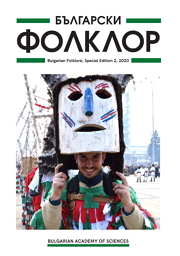
This article is dedicated to the fortieth anniversary of the founding of the Bulgarian Folklore Journal. The reflections on the Journal which are discussed here are made in the context of the political and sociocultural development of Bulgaria, as well as in the context of national and international traditions in the study of folklore. At the same time, these reflections address changes in scientific paradigms and theoretical approaches, the problems of the existing boundaries between disciplines, the re-definition of scientific scope and newly defined fields of research. The interdisciplinary nature of the Journal, the development of its scientific profile, and its transformation into a journal for scholarly research in the field of folklore studies, ethnology and anthropology in the 1990s are given special attention. Editorial politics and practices, as well as different aspects of its theoretical sensibility and applied aims are traced. The place of the Journal among Bulgarian humanities periodicals and its international visibility are also highlighted.
More...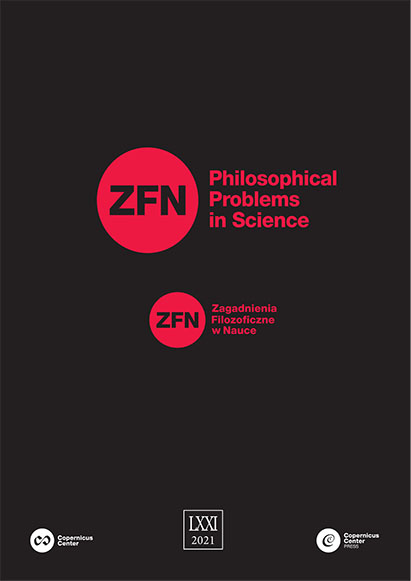
Analytic description, according to members of the Lvov-Warsaw School (LWS) like Czeżowski, Ajdukiewicz, Ossowska, Tarski is a powerful and an indispensable tool, not only in philosophy but also in any natural science – in psychology especially. It should be equally respected together with empirical analysis and even it is recommended that it should precede any further research. Therefore, the book Analiza i konstrukcja: o metodach badania pojęć w Szkole Lwowsko-Warszawskiej [Analysis and construction: on the methods of researching concepts in the Lvov-Warsaw School] can be recommended to philosophers as well as scientists.
More...
The article discusses the origin and meaning of the notion and the term leonine partnership, as well as the problems associated with the distribution of profits and losses between the partners in the consensual contract for partnership in Roman law. The fragment from the Digests of Justinian where actually is the unique mention of the expression societas leonina and this form of partnership is defined by the Romal classical jurist Cassius is subjected to a legal-dogmatic and linguistic analysis. The fable of Phaedrus for the partnership between a lion, a goat, a cow and a patient sheep which is considered to be the original source, used for forming the concept of the leonine partnership in Roman legal thought is completely analysed and interpreted. The author paid special attention to the magna questio (the great discussion) among Roman jurisprudence, dating from the period of the end of the Roman Republic with some projections and in the classical period in connection with the distribution of profits and losses in the consensual contract of partnership as a result of the partnership`s activity. And on the other hand the article examines the problem about the existence of privileges or restrictions for certain partners regarding the profits and analysis of the two leading opinions on the subject through the exegesis of a fragment of the Institutions of Gaius.
More...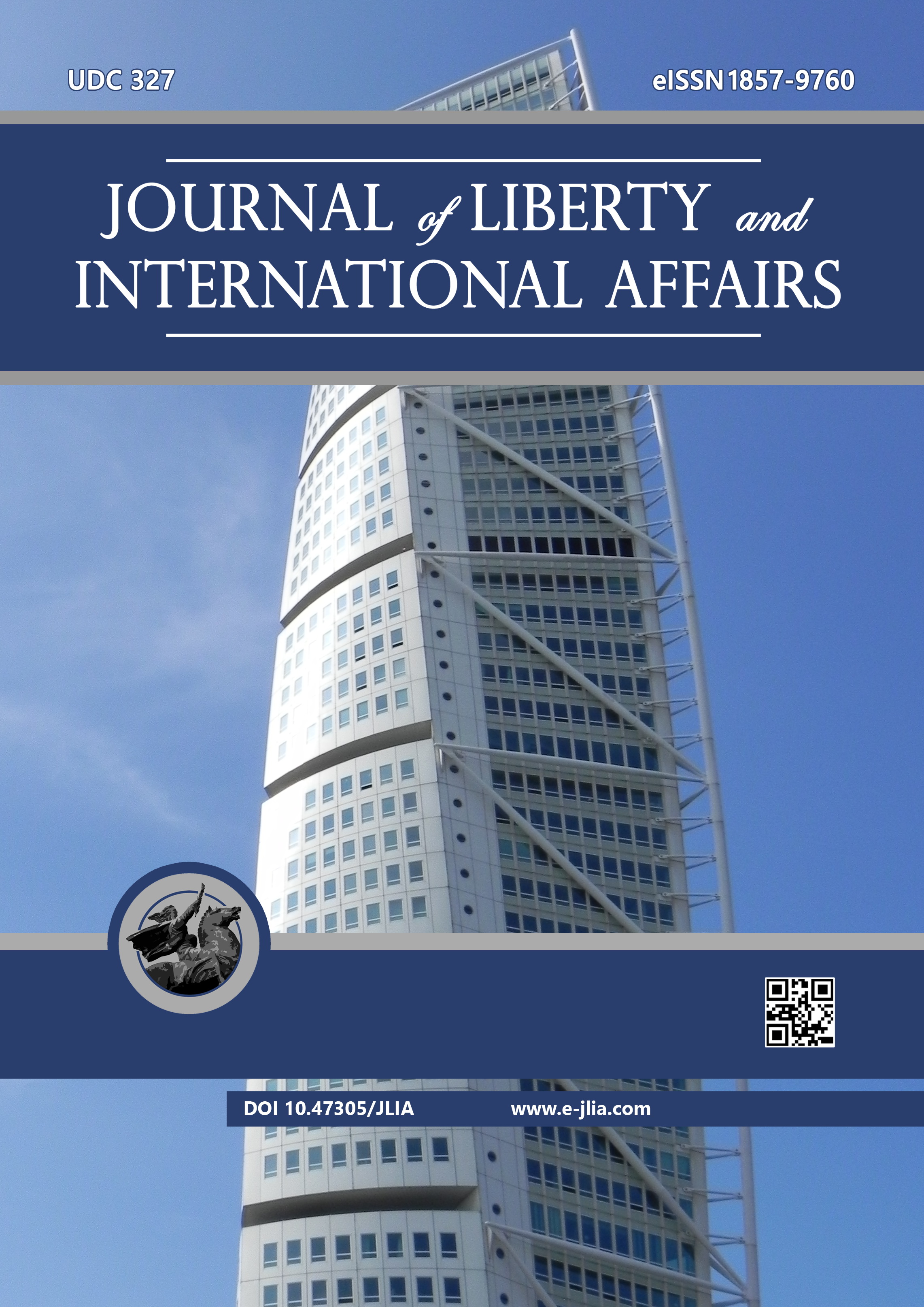
Donald J. Trump, one of the 2016 US presidential candidates, is thought to have benefited from political fact-doctoring in his attempt to diminish his adversary's reputation using the post-truth phenomena. This research aimed to identify and analyze post-truth phenomena that infiltrated the political system, media, and the American people during Donald J. Trump's leadership. This study used a qualitative approach with a critical thinking analysis method. The findings found that individual rationality's post-truth disrupted and then directed to online information impulses, in which people tended to seek information that supported their own opinions, particularly on issues connected to Donald J. Trump's leadership in all sectors of policy, including irrelevant facts or reality and the use of language increasingly exploited by hyperbole without a clear basis reference.
More...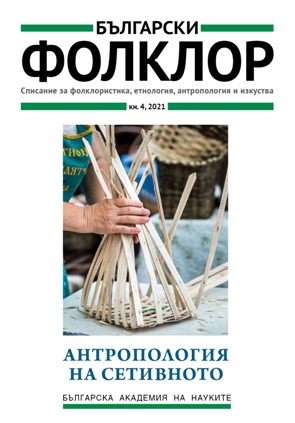
The article discusses notions referring to the ruler and his body according to the pagan views of the Bulgarians in the epoch before Christianity was adopted in the Bulgarian lands. Drawing on written sources and material evidence, an attempt is made to interpret ideas, signs and objects which form the system of the ruler’s ideology. Typological similarities are pointed out between the ruler’s ideology of the Bulgarians and that of the peoples of the Eurasian Steppes, Central Asia, and with other peoples from the Migration period.
More...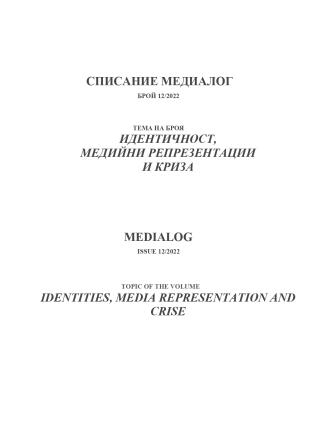
This paper offers an overview of some of the main aspects of the theoretical debate on representation. The section presented here is mainly illustrative in terms of some of the theoretical foundations on which later authors engaged specifically in discussing the phenomenon of representation in contemporary media build (a topic addressed in another text). The analysis focuses on the ways in which representation has been discussed in texts by Roland Barthes, Jacques Derrida, Michel Foucault and others. The emphasis is on problematizing the possibilities of representation by means of language.
More...
The text offers a review of Prof. Miglena Nikolchina's monumental study "God with Machine: Subtracting the Human", dedicated to fundamental theoretical conceptualizations around anthropological issues. The review dwells in particular on the central conceptual paradox outlined in Prof. Nikolchina's book, namely the double determination of man as "a being who wants to be human" and “being who does not want to be human”
More...